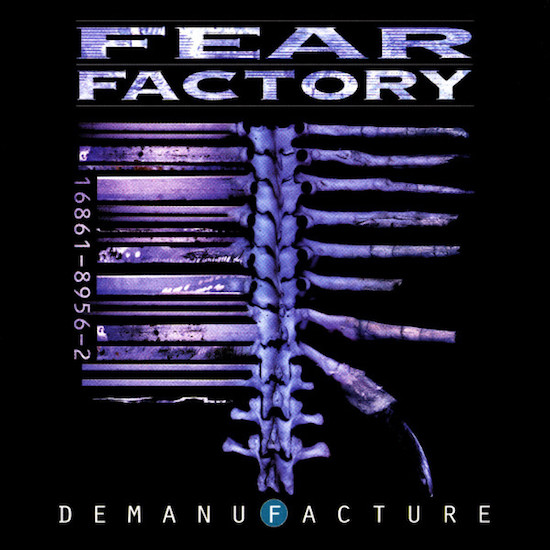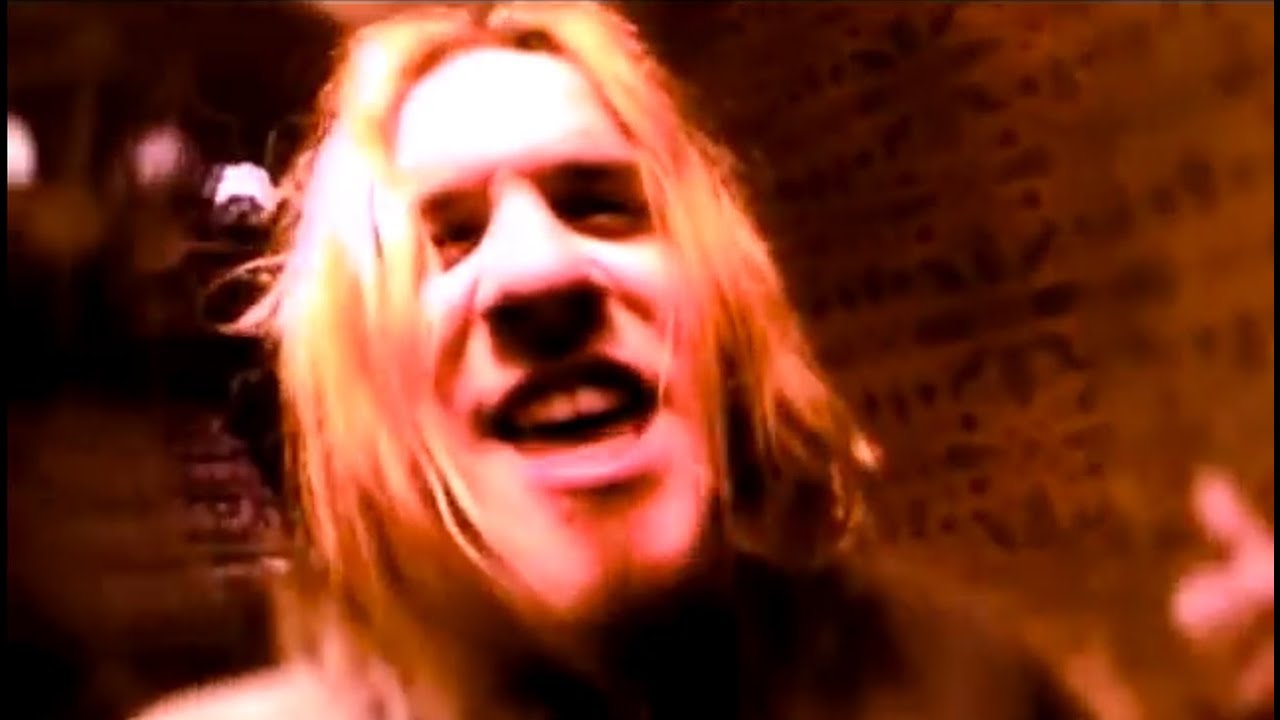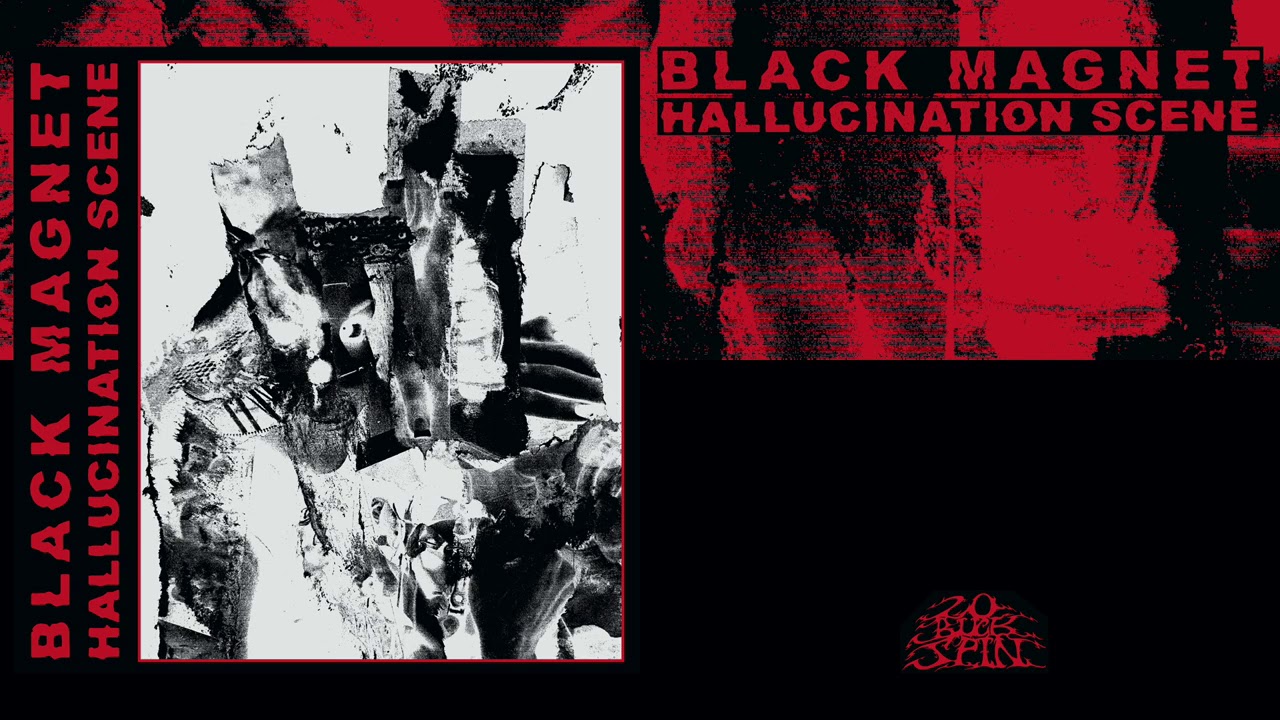"No fate" – the legend Sarah Connor wistfully carves into a picnic table in 1991 action juggernaut Terminator 2: Judgement Day. These words play to the mantra that "there’s no fate but what we make for ourselves" in a film that, amid high-octane chase sequences and flashy gun battles, throws up questions of determinism, humanity, unchecked technological advancement and, if you take a wider view of the franchise that followed, just how much increasingly watery sap you can wring from a once novel idea.
While Terminator 2 might have embraced MTV generation with its Public Enemy tees and Guns N’Roses tie-ins, there was another artform rattling fillings that seemed far more in step with the film’s grimier 1984 predecessor: a clanking, hulking, ash-grey form born of a confluence of underground and avant-garde influences (Swans; Killing Joke; Nurse With Wound; Throbbing Gristle; Wax Trax! Records) that would, for a time, conquer rock club dancefloors before dissolving messily into a pool of its own battery acid. This was industrial metal, a genre that stripped heavy metal down for parts and merged what was left with samplers, sequencers and, oftentimes, stark visions of humanity’s ultimate end.
The descriptor takes in the onanistic, drug-fried excesses of Ministry and early Nine Inch Nails as well as the po-faced drudge of Godflesh and the dub-smeared explorations of Scorn – a mechanistic, mongrel genre that promised a future humanity has thankfully failed to deliver.
Because we have to have our own Judgement Day, it seems apposite to June 13 1995 and the release of Demanufacture – Fear Factory’s cold, steely magnum opus that was undeniably significant if also hard to entirely love. With its human-spine-as-barcode sleeve it was an album aiming for the perfect synthesis of man and machine, directly inspired by the two Terminator films and hinting, like the wider subgenre, at an evolutionary promise that would drag heavy metal from cobblestone-faced Arnold Schwarzenegger to the sleek, silvery future of Robert Patrick’s jug-eared T-1000.
Instead it served as the creative death knell for the band, and, in many respects, the genre itself. Post-1995 many of the subgenre’s founding fathers would be running out of puff (Godflesh slowly; Pitchshifter rapidly) or tumbling towards out-and-out irrelevance (Ministry), while commercial figureheads Nine Inch Nails would take pause after the release of 1994’s The Downward Spiral before changing tack towards ambient and experimental electronic rock.
1995 was also the year that saw Filter score both a hit single and a million-selling album with their poppified, grungified spin on the genre, and Rammstein unveiled their debut LP, formally launching a hugely successful career that took the sound from sticky-floored goth clubs to stadiums, albeit with an approach that often seemed to reduce the sound to an anvil being rhythmically struck with a lump hammer.
A creative nadir coincided with mainstream realisation that any putz with a sequencer could give their limp, ailing rock & roll an industrial shot in the mechanical arm, and if Bowie’s experiments in this field might’ve been genuinely noteworthy, elsewhere, creatively speaking, there were many more misses than hits. In short, the sound of the future rapidly became a quaint remnant of a bygone age, its potential fading like the red light of a Terminator’s eye as its skull is crushed beneath a hydraulic machine press.
Instead, heavy metal’s actual future splintered into a choose-you-own-adventure of influences that had very little to do with Misery Loves Co., Cubanate or Stabbing Westward: the cold, haughty grandeur of black metal began to take hold of imaginations outside of its own highly insular micro scenes, as did the the jazz-battered metalcore of Converge and The Dillinger Escape Plan, the gleaming, machine-tooled metronomics of Meshuggah and, at the polar end of the scale, the Cro-Magnon rituals of Earth, which were soon followed by those of Sunn O))).
This, then, brings us to 2020. A quarter-century later and man has not yet been pitted against machine; the world is not quite a barren deathscape paved with carbonized human skulls, nor is it a teeming rats’ nest of chrome spires and holographic signage. Things are indeed quite shit, but the terrors we face are blander and duller if no less cruel than the two-men-enter-one-man-leaves realm inhabited by Mad Max: there are no rayguns, no HKs whirring overhead and no leather-clad mutants picking their way through the rubble of a fallen society. The horrors of 2020 are quieter and more prosaic, and the bullies running and ruining the world are buffoons with no plan greater than short-term accumulation and the furthering of their own craven dynasties.
Against this backdrop, a handful of bands have begun to worm their way up from the soil and doff their caps to the fallen titans of industrial metal. Press releases mention not just those acts whose currency has been renewed (Godflesh) or remains largely untarnished (Nine Inch Nails), but push outwards to encompass lesser-knowns like Scorn and Meathook Seed.
Typography, once more, has begun to look futuristic and at the same time extremely dated, as though salvaged from an upper-tier ZX Spectrum title. Even Blood From The Soul, the one-shot industrial metal collaboration between Napalm Death’s Shane Embury and Sick Of It All’s Lou Koller, has resurfaced, albeit with Koller absent and the band upgraded to include members of Soilwork, Nasum and Converge.
Like the nuclear blast that turns a playground’s worth of children to ash in Sarah Connor’s nightmare vision, there’s a sense of inevitability about all of this. After all, it’s far harder to look forward than to look back, and for the past 20 years or so heavy metal and hardcore have been rampant necrophiles, dragging overlooked or disgraced genres like noisepunk, crust, oi and deathrock back from the pit in order to kickstart fresh new microtrends. Industrial metal was somehow ripe to be picked over: the vintage was right, the aesthetic clear and the sound dated and unacceptable enough that it seems both fresh and jarringly gauche.
Formidable metal labels like Relapse and 20 Buck Spin are in on the act, with Realize’s Machine Violence seeking to identify the throughline that links furrow-browed powerviolence to Godflesh, while Black Magnet’s Hallucination Scene pays a convincing debt to Earache Records’ industrial canon. Bubbling away elsewhere you have Fearsore, whose artwork looks like a flyer promoting a Camden Market cybergoth stall, and L.O.T.I.O.N. – a band whose aesthetic is arguably more in line with the Johnny Mnemonic soundtrack melted down and cut with every Ultraviolence remix ever commissioned but offers, perhaps, a logical end point for where all this all might ultimately take us.
Let us be clear: these are not bad bands and this is not a rank dismissal of the music they have made. Most of these acts and most of their releases are actually fine and eminently easy to rub along with. This, in a way, is part of the problem: for all their follies and for all the sub-William Gibson worldview, the early wave of industrial metal acts did seem odd, challenging and on the trail of something different.
Sequencers, triggers and drum machines just weren’t the Done Thing in heavy metal, and, unless you were wilfully operating out on the fringes like Blind Idiot God, you didn’t admit to bringing dub to the heavy metal table. Now, of course, all of this is ten-a-penny: drum machines lurk in corners as variegated as grindcore, noise rock and black metal; dance music became a de facto part of the heavy metal lexicon thanks to The Fat Of The Land and the Spawn soundtrack while the sample-heavy, quasi-industrial clank of 90s Neurosis provided fuel for a generation of toothless post-metal acts lumbering in the wake of Isis.
There is then no shock or awe at hearing this style resurrected and played so convincingly in 2020, only the slight novelty of chancing upon something you haven’t heard in a while being peddled by younger faces. Again, this isn’t a problem unique to Realize or Black Magnet or Fearsore. Whole subgenres, after all, have become slaves to the sounds produced by a specific genre, region or even band, and if you want to hear someone playing Finnish death metal circa 1992 or Portland punk circa 1983 then Bandcamp is your horn of plenty. One person’s muck is another’s money, and if you live long enough you’ll doubtless hear every band or sound you, your parents and your grandparents ever loved recycled and repackaged anew. Why not, then, industrial metal?
The intellectual problem, if you want to make it one, extends beyond a simple nostalgic rediscovery, or even the earlier flub of industrial metal’s own grim futurism – it somehow represents a failure of imagination to carve one’s own path. This accusation could obviously be levelled against any modern band cribbing too heavily from Bathory or Celtic Frost or Suburban Lawns, but the issue runs deeper when it comes to a genre that was initially so fixated on the future. Indeed, it seems like a direct repudiation of the legend Sarah Connor carved into that weathered picnic table with her bowie knife: the following of a predetermined course rather than leaning into the "no fate" koan. Beyond this, even, it sees these bands bend to a strange sort physics-fucking worthy of the Terminator franchise’s later instalments, as they somehow find themselves looking back on a future that never actually came to pass.
Lest this slightly discombobulating notion cause you to worry that we might somehow tumble from the mild disappointment of Terminator 3: Rise Of The Machines or Terminator Salvation or Terminator Genisys or Terminator: Dark Fate into a far more terrifying future wherein The Human Centipede is rewritten by Philip K. Dick, let it just be said that there is hope. Or hope, at least, of a kind. The poisonous, machine-fucked horizon-scanning of the early 90s does live on, and in ways that extend beyond Broadrickian chunters or retro-futurist graphic design.
New York’s Uniform, for example, are now uncomfortably deep into a career that melds industrial metal, noise and painful self-realisation, creating a pulp-inspired, psychically sick sound wherein inner and external horrors try desperately to suffocate each other. Their occasional collaborators The Body, too, hark back to industrial metal while twisting it into vile new forms. The mechanical clatter of early 90s Earache and Trent Reznor’s existential mope both ripple beneath the surface of their baleful avant-doom, alongside so many other influences – hip hop, classic rock, classic pop, choral music – that the band seem to have no clear ancestors or antecedents whatsoever. Elsewhere, Author & Punisher (a.k.a. Tristan Shone) operates in a more familiar sonic realm, but at least gets credit for putting industrial metal’s money where its mouth is by engineering a man-versus-machine set-up that has Shone placed Robot Jox-like at the heart of a piston-powered Dinobot to make his music.
This being real-life rather than a movie, of course, we can have our cake and eat it. We can let wheezy, wounded Miles Dyson blow up the Cyberdyne building and we can delicately cover our mouths with a handkerchief when the ash that was once children is blasted in our direction. We can nod benignly to the familiar sounds of Black Magnet and move on to The Body when we want to be challenged or assailed or swamped by someone else’s fears and doubts rather than our own. The choices are not binary, and every piece of music does not have to fulfil the same function. And yet, it still feels funny, this notion of living life on rails and gazing back in order to look forward to a second-hand future. What might come next? Unsubtle homages to Pigface and Revolting Cocks? [I hope so, Ed] An all-star tribute to Filth Pig? A critical reappraisal of Orgy? There are some futures that are just too dark to contemplate, so ask yourself, in the earnest, baritone voice of Burton C. Bell: “Is this really what Sarah Connor fought so hard for? Is this really what she would have wanted?”





